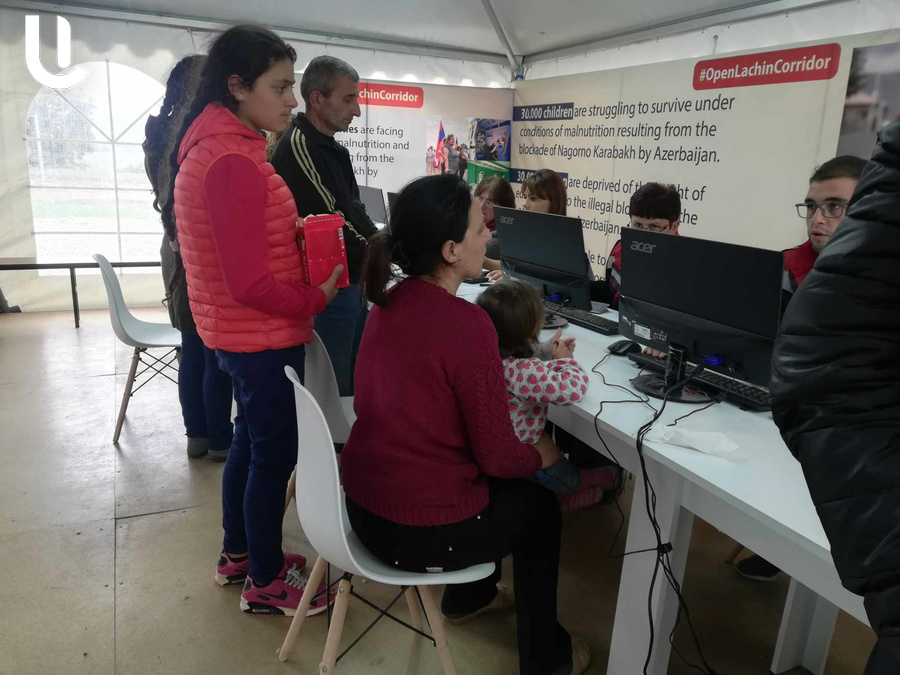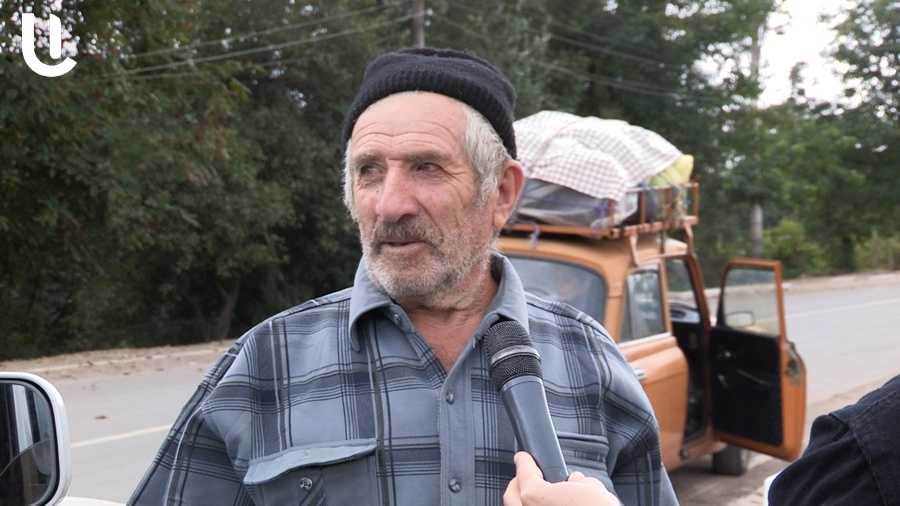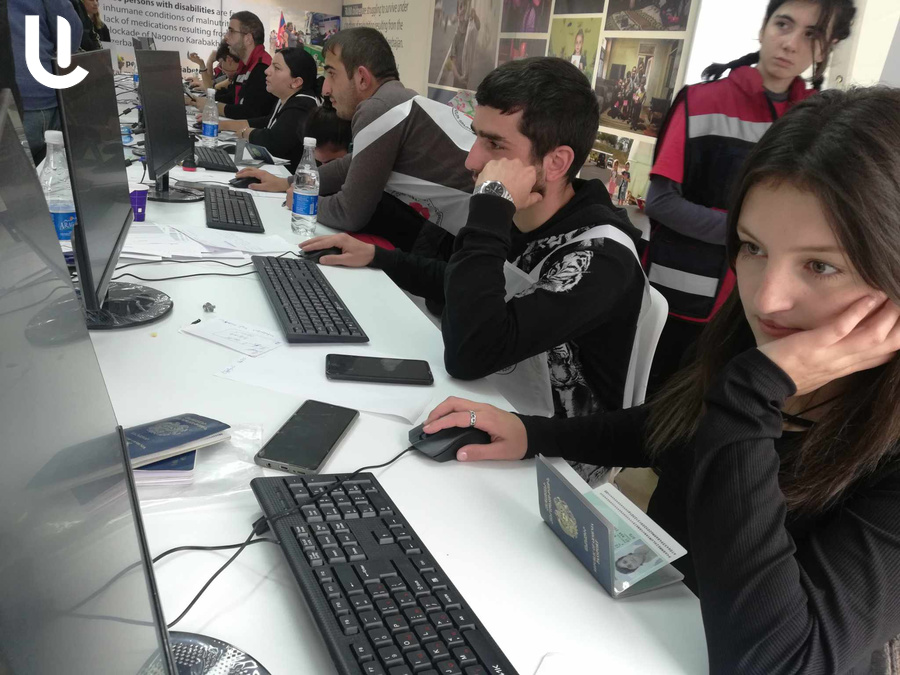“It’s been eight months I haven’t put anything normal in my mouth. The Turk was grilling next to us all day, and we’re hungry too,” says Nazik, a 47-year-old displaced from Artsakh, drinking hot coffee with a pie. It is near the Goris Theater building.
She is waiting to be escorted to the hotel. She does not want to be photographed. “I don’t want my enemy to see me like this and be happy. One day, God will pour fire on the heads of those who brought us to this state,” says Nazik.
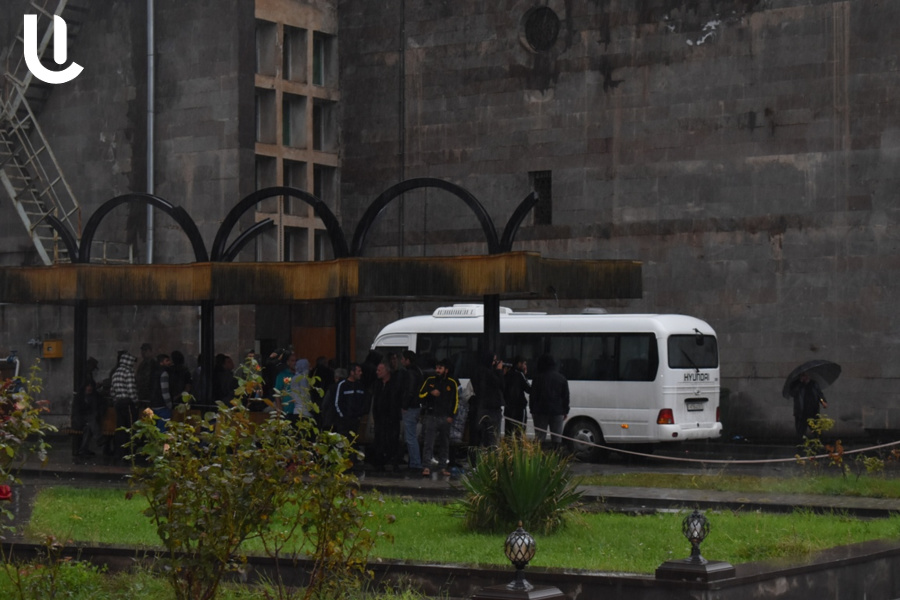
Pavlusha Serobyan arrived in Kornidzor in his “Moskvich” car with his wife, daughter-in-law, and three grandchildren. “They ask: what did you bring with you?” What should I bring, barely the children and our clothes. The refrigerator, vacuum cleaner, big TV, all I had created in these years was left to the profane,” says Grandpa Pavlusha.
Read also
There is a commotion in the Goris Theater building; everyone is in a hurry; they want to be registered and leave for their places of residence. People are accommodated in hotels in the Sisian and Goris regions’ settlements, with vacant houses. “They say: don’t go, you will come back, electricity and gas will be free. Then they say, go and liberate our Karabakh.
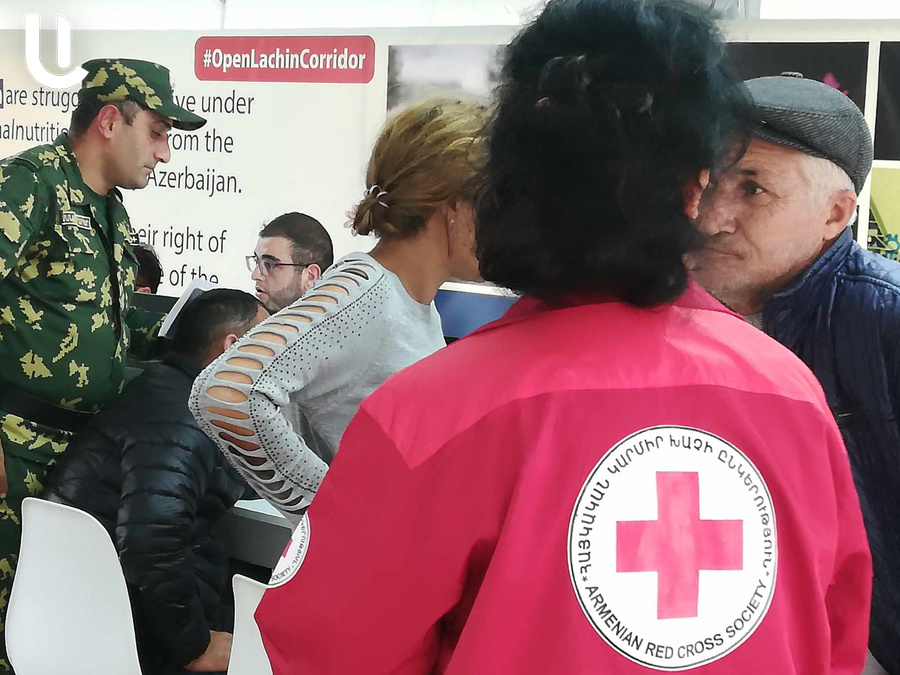
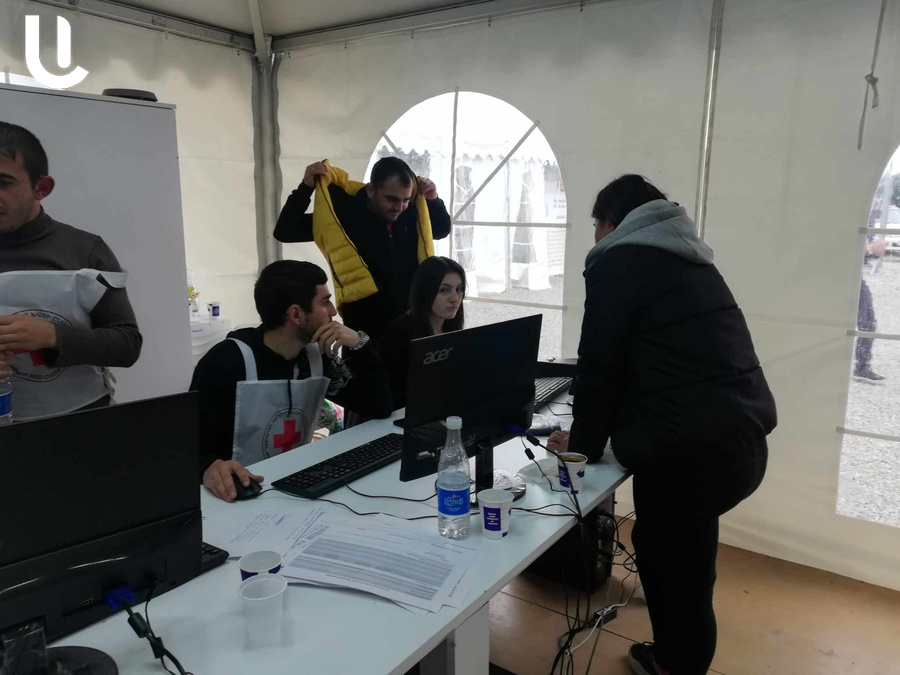
The Turks said it when we were crossing the Hakari Bridge,” says 26-year-old Anushavan Gasparyan, noting that he came by bus with his wife and 3-year-old daughter.
“My parents are still there. They are waiting for you to bring a couple of things; we will not leave our livelihood to them,” Anushavan says in a conversation with Aravot.am. “I left my two-story house, closed the door, took the key, and came so the Turks could come and enjoy; they are used to enjoying other people’s work. Their Allah will punish them one day, not to mention our God,” says Nvard Hovsepyan while leaving for the “Goris” hotel with her grandchildren.
“Our village was Vank. They entered and told us to come out; they held their weapons at us. They gave time; if not, you will not survive,” says Gohar Harutyunyan.
The entire staff of the Syunik Governor is in Goris. Together with volunteers, they count the displaced and accompany them to their places of residence. “I came as a volunteer. I want to be useful, but they say there is no need for volunteers just now; they took my data to call me if necessary,” says Armine, a 21-year-old resident of Goris. She is not alone; 25 other people volunteer to work in shifts.
And the flow of people coming from the Hakari Bridge does not stop. There are even traffic jams.
Armen DAVTYAN




















































